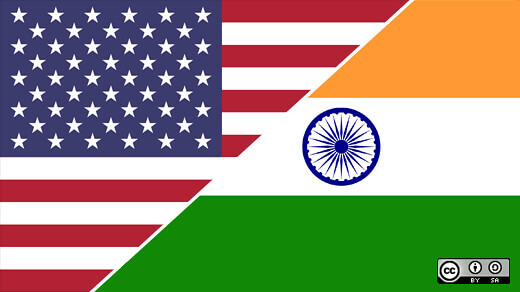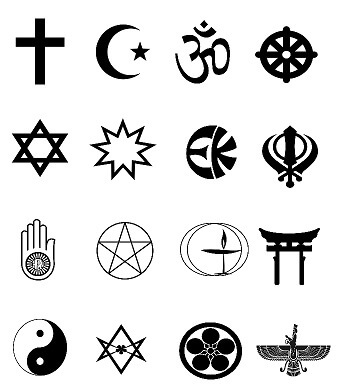A decade ago, President Barack Obama termed the United States of America and India as natural allies. One is the world’s oldest democracy while the other is its largest. Both nations are highly diverse across multiple sociological and cultural axes. Perhaps the biggest casualty of the Cold War was the relationship between these two “natural allies.” Anyhow, now when these two democracies are closer than ever before, it might be a good time to reflect on what they can learn from each other. Situated at the opposite ends of the globe as bastions of plural societies, they are bound to play major roles in the twenty-first century.
The first thing to note at the outset is that since the structure of the Executive branch of the government is fundamentally different (American being presidential whereas Indian being parliamentary), I will only focus on those points which are independent of (or at least very trivially correlated with) this characteristic. Similarly, I will not focus on specific policies of the government such as views on being a welfare-state, specific foreign policy-based issues, or domestic concerns regarding the relationship between states and federal/central government. Neither shall I focus on specific personalities, bureaucracy, or political campaigns. Of course, some issues are common to both democracies such as the disappointing ratio of female to male parliamentarians, extravagant spending on elections, and how private enterprise funds political campaigns in an opaque manner and influences the incumbent government’s policies. Instead of these, I will try to succinctly focus on the larger picture (succinctly since each of these points can be made into an article on its own).
What can Indian democracy learn from American democracy?
-
Tolerance. Freedom of expression as practiced in America is still a distant dream of Indians. Any entrepreneur can criticize the government or the president in any way without having to fear for any repercussion while any filmmaker can produce a movie on any subject whatsoever without worrying about facing any bias from the censors due to the government’s inclinations or of goons clamoring for a ban on the movie. In America too, some citizens hold extreme opinions regarding the government’s policies but they are not labeled as “anti-national” or “tukde-tukde gang.”
-
The focus on local elections and grassroots issues independent of personalities at the national level is another characteristic of American Democracy that should be emulated. Elections in various counties and states are solely fought based on issues such as education, employment, environment, infrastructure, etc. affecting those particular counties/states. The president or other powerful/famous leaders do not hold multiple rallies to influence the public. This means that local-level leaders are elected solely based on their performance or promises.
-
In part as a consequence of the previous point, in both the Republican and Democratic Party, leaders rapidly rise in their youth. Both parties continue to be meritocratic in the political sense of the term and their institutions are strong enough to not let any single leader or family take over the whole party apparatus. Even sitting presidents have to struggle and make compromises with their own party leaders to get legislation passed in Congress. At a time when most of the political parties in India have become personal fiefdoms, the sowing and nurturing of such institutions of inner-party democracy will only strengthen the Indian democracy.
-
In America, partisan warfare is as bad if not worse than in India. But, both sides of the political divide maintain the decorum of not demeaning the nation’s founding fathers or stalwart leaders from the other party who are no more. This provides sort of a unified sense of where the nation is coming from and where it is heading. To bicker over the legacy of the founding fathers or to question their sense of nationalism as happens so often in India is not demeaning to them but to our democracy since the past seven decades are themselves a testimony of the wisdom of India’s founding fathers.
-
As early as the 1830s, Alexis de Tocqueville noted about the dual nature of the American culture: ‘[I]t is the result of two distinct elements, which in other places have been in frequent hostility, but which in America have been admirably incorporated and combined with one another. I allude to the spirit of Religion and the Spirit of Liberty.’ The institution of religion must be kept separate from that of democracy. It is just irrational to bring an institution that evolved into existence thousands of years ago into our present democratic ideals of equality and safeguard of minorities.
What can American democracy learn from Indian democracy?
-
The independence of Judiciary in India especially that of the Supreme Court which has the responsibility of attending to fundamental and far-reaching matters concerning the Constitution ensures that the Executive branch cannot get its way in every matter. In America, the appointment of justices to the Supreme Court for life acts as a tool for propagating partisan policies for years to come. In fact, for many fundamental debates such as regarding gun-related violence or race-based discrimination, the decision of the Supreme Court can be predicted solely based on the political convictions of the sitting justices.
-
Since there is no public accountability for the president’s team, he (for there hasn’t been she yet) can appoint anybody as his adviser and secretaries. At times this proves to be very beneficial for the nation since smart intellectuals from academia are brought in to steer the nation into uncharted waters. At other times it proves to be disastrous for America as well as for the world since those same appointees (intellectuals again!) prove to be too elite. Thus, they are unable to understand the psychology of the oppressed and those at the bottom of social hierarchy.
-
The enthusiasm among voters during elections that has been cultivated in India by the government (right from Nehru’s time) is unparalleled. Voters believe that by exercising the right to vote, they can transform their lives. Among the major nations of the world, India is the only democracy where the poor come out to vote in large numbers with faith in the system. Their faith is bolstered by the functioning of the Election Commission which always does commendable and exceptional work. America has much to learn here since those who need the power of the vote most are exactly the ones who have lost faith in the system. Blatant gerrymandering by the incumbent government further exacerbates their fears while crushing their hopes.
-
Cosmopolitan worldview. Even with the present worrying trends originating in India, I would say that Indian democracy is more acceptable and welcoming to the idea of diversity. One does not have to speak a single language (English) to get assimilated into society or be of a particular color to become immune to social and economic discrimination. At the same time, Indians in the hinterland are so much curious about the foreigners and are instinctively welcoming to them. Indian political leaders do not vitriolically pour out rhetoric as American leaders have been doing against immigrants from our South Asian neighbors despite India being a much poorer country. Even at the time of its founding, India had a much more welcoming view toward outsiders than did America of the time where only whites could easily immigrate and participate in the “American Dream.”
-
At the federal level in America, as the government changes, the government’s objectives and a whole lot of policies are reversed. This may be desirable domestically but being the most powerful nation on the planet, it creates an atmosphere of confusion around the globe. A reversal of the government’s aims and policies has repeatedly shown to be detrimental to not just world peace but also to America’s own interests. In India, there is always a lot of rhetoric by the opposition against the government but as soon as the opposition captures power, the policies of the previous government are quietly adopted, refurbished, renamed, and propagated more zealously. This continuity helps in building trust domestically as well as internationally in the ideals of the nation.
A fitting conclusion might be the advice given by Kabir which political leaders in both nations should follow irrespective of where it is coming from:
Nindak niyare rakhiye aangan kuti chhawaye
Bin sabun pani bina nirmal karat subhaye.

 Abolition of Article 370 of the Constitution of India
Abolition of Article 370 of the Constitution of India